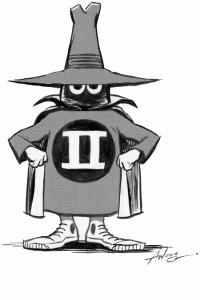Search the Community
Showing results for tags 'explains'.
-
http://www.tremeritus.com/2014/03/31/st-journalist-explains-irksome-behaviour-of-prcs/ ST journalist explains irksome behaviour of PRCs March 31st, 2014 | Author: Editorial A relative of a passenger on Flight MH370 shouting at journalists in Beijing last week (Photo REUTERS). Kor Kian Beng, the ST China Bureau Chief In Beijing, wrote a ST article today (‘MH370: When grief turns into anger’, 31 Mar). He wrote to explain that the unique psyche of PRCs may help to explain the quarrelsome behavior of relatives of PRCs who were on Flight MH370. Flight MH370 went missing on 8 March and it has yet to be found. Mr Kor wrote, “For about 400 grief-stricken relatives of the 153 Chinese passengers on board missing Flight MH370, their behaviour has run the gamut from going on a hunger strike, and gatecrashing an official press briefing in Kuala Lumpur, to protesting in front of the Malaysian Embassy in Beijing and hurling insults at Malaysian government and airline officials at meetings.” “They were protesting against the pace and course of investigations and demanding to know why the Malaysia Airlines plane never made it to its intended destination, Beijing, and how it could have remained missing since March 8.” Mr Kor specifically noted that media reports of PRCs’ behaviour contrasted sharply with that of families of other nationalities, who also have relatives on the plane. Even Acting Transport Minister of Malaysia, Hishammuddin Hussein, said, “The Chinese families must also understand that Malaysia also lost loved ones and many other nations also lost loved ones.” “I have seen images (of relatives) from Australia: very rational, understanding this is a global effort, not blaming Malaysia, because it is coordinating something unprecedented.” Mr Kor, being based in China, tried to examine the factors behind PRC behaviour and whether most people, if in the same plight and living in the Chinese society, would have responded the same way. He said, “After living here for two years, I have come to realise just how much the Chinese people suspect their government and officials of covering up scandals or hiding the truth. Just take a look at the Chinese cyberspace, where netizens often poke holes at official pronouncements and slam government policies.” “This helps explain why many relatives, until now, still believe that the Malaysian government is not coming clean on the missing plane.” Mr Kor said that many PRCs also believe in taking things into their own hands. They also believe that in the law of the jungle, only the fittest, as well as the loudest, wins. He recounted, “I was once standing in line at an airport check-in counter when a group of men rudely cut in. When I told them off, they started heckling me and calling me blind.” “Perhaps this is why the relatives who are in Beijing have been extremely vocal in their anger and demands as shown during meetings with Malaysian officials and the embassy protest last Tuesday.” Mr Kor quoted Prof Hu Xingdou, who said, “China is not a law-based society but one ruled and determined largely by the elite few. So the people know that they have to kick up a fuss, fight, and struggle to get their way.” The society’s focus on making money and becoming rich over the past 30 years has also diluted social values such as character-building at home or in school, leading many to act in less restrained or ungentlemanly ways, Prof Hu added. Other factors may include a sense of superiority, boosted by China’s rise as a future superpower, Mr Kor said. “Ultimately, the most powerful force driving the Chinese relatives’ behaviour has to be their fear of losing their loved ones, forever. Emotions running high – grief, anguish, anger, fear – cannot be assuaged easily,” Mr Kor said. Mr Kor concluded, “Would I have acted the way they did? Probably not. But then, I’m not in their shoes.”
- 92 replies
-
- behaviour of prc
- journalist
-
(and 4 more)
Tagged with:
-
Check out the response at the end... From ST Forum: http://www.straitstimes.com/STForum/Story/...ory_804757.html HOUGANG BY-ELECTION Low explains comments on media I SHARE the editorial writer's view that 'anyone who claims to promote the idea of a First World democracy should take care to uphold its institutions, including the media' ('Fallout from the Hougang showdown'; yesterday). At the by-election public rally last Thursday, I said: 'The media is a potentially powerful tool for or against certain political parties. Therefore, it is imperative that the media must become a reliable source of information for the people, independent from the strong influence of the Government... We must not allow the media to be used by the Government as a political tool.' At the press conference last Saturday night, I reiterated that only with an independent media that presents fair and accurate information, can the people make an informed choice of their Member of Parliament. In the recent campaign, I detected biased reporting, calculated to damage the Workers' Party (WP) candidate and the party itself. For example, the front page of The Straits Times last Wednesday showed a large photo of party chairman Sylvia Lim and myself talking to each other with grim faces at our rally, with the candidate in between, with the headline 'WP faces allegations of dishonesty'. This was after the accusations had already been publicly clarified. The writer is wrong to suggest that I am unhappy because there were adverse reports about WP. I welcome scrutiny of WP, but when images and headlines are manipulated to mislead readers, is it acceptable? The media also reported unverified news and anonymous opinions. In Lianhe Zaobao on Monday, I cited the front-page report by my paper last Thursday, featuring an e-mail interview with the 'Secret Squirrel', who claimed to be a WP member, attacking WP. I have asked my paper whether it has established and verified the identity of 'Secret Squirrel'. Based on my 30 years' experience in Singapore politics, I am well aware of the critical role the media can play towards a First World democratic society. The recent reportage of the Hougang by-election leaves me concerned. The media can become a stumbling block to the progress of democracy in Singapore and set us back by 20 years. Whether this is unfounded or not, I leave it to Singaporeans to judge. Low Thia Khiang Secretary-General Workers' Party -------------------------------------------------------------------------------- ST Editor replies: We believe our coverage of the Hougang by-election was balanced and fair. Mr Low has taken issue with a photo we used on May 23. We picked this as it summed up dramatically the story of that day. It showed the Workers' Party candidate Png Eng Huat, the man in the middle of the controversy, framed by his party leaders deep in discussion. The headline accurately referred to the WP 'facing allegations of dishonesty', as was the case from the developments through the day, and which the WP sought to address at its rally. On the leaked WP memo sent by 'Secret Squirrel', we chose not to run this on the night it was sent to us, so that we could do our own checks on it. There were also many other allegations swirling about on the Internet about the WP candidate, which we decided not to run as they could not be substantiated. If indeed we were minded to paint a misleading picture of the WP, as Mr Low charges, we would not have acted with such circumspection. The morning after his post-election outburst against the media, Mr Low told reporters that his remarks stemmed from a 'feeling' that the mood among journalists during the campaign was 'not so jubilant' compared to last year's General Election. That came as a surprise. As professional journalists, we do not see ourselves as cheerleaders for any political party. Our aim is simply to report the news dispassionately and objectively, so that our readers can decide for themselves. That we have done, and will continue to do.
-
ST Forum ExxonMobil explains pump pricing WE UNDERSTAND Mr Lim Kia Cheh's concerns ('Pump prices quick to rise, slow to fall', Forum Online; Aug 13). Pump prices do not rise or fall at the same time or magnitude as crude prices because pump prices are affected by a combination of factors, of which crude prices are but one of these many factors. Commodity and product prices, while linked, also have different supply and demand dynamics. In addition to market competition, fuel prices are determined by a number of other factors, including wholesale fuel prices (which may be different to crude oil prices), taxes and other operating costs. Some Competition Commission of Singapore staff had recently carried out an in-depth, independent study into the fuel retailing market in Singapore. Part of the study included an econometric analysis on the retail petrol prices to test if the 'rocket-and-feather' (where prices rise more or faster than they fall) phenomenon exists and they found that the results do not support the existence of such a phenomenon. Loh Pin Chuan Public and Government Affairs Manager ExxonMobil Asia Pacific
- 48 replies
-
- ExxonMobil
- explains
-
(and 2 more)
Tagged with:
-
Watch the video here. It starts with a song before Steve Jobs comes in. http://events.apple.com.edgesuite.net/1007...vent/index.html
-
is this salary reasonable, too high or too low how to balance charity organisation goal to lower administration cost and attract good staff IN THE special report, 'Medical charities the best paymasters' (March 30), Dover Park Hospice was mentioned as having paid its former medical director a salary range of $200,000 to $250,000 per year. Mr Paul Chan, in his letter last Tuesday, 'It can't be about top dollar for top talent', brought up the issue of good governance of publicly donated funds to these (medical) organisations. We have always been transparent with our salary costs and would like to shed more light on the salary paid to our former medical director. She was also the chief executive officer of Dover Park Hospice until her resignation in July last year. This means she was working full time with us and was responsible for hospice operations. She also oversaw medical governance of the hospice. Her salary package was below what would be paid to someone in a restructured hospital of her seniority and with similar responsibilities. She has since left Dover Park Hospice and has returned to work with a restructured hospital. It is always difficult to find qualified people to be our medical directors. We currently have a service agreement with Tan Tock Seng Hospital whereby our medical director is assigned and paid for by the hospital. Dover Park Hospice has all along been fortunate to have staff who are dedicated to our cause and share our vision. In the past, we have had medical directors who worked for free or lower than market rates. We wish we could always count on such individuals to come forward. But when they are not available, we have to pay market rates to secure their services. Teo Siew Hong (Ms) Chief Operating Officer Dover Park Hospice



